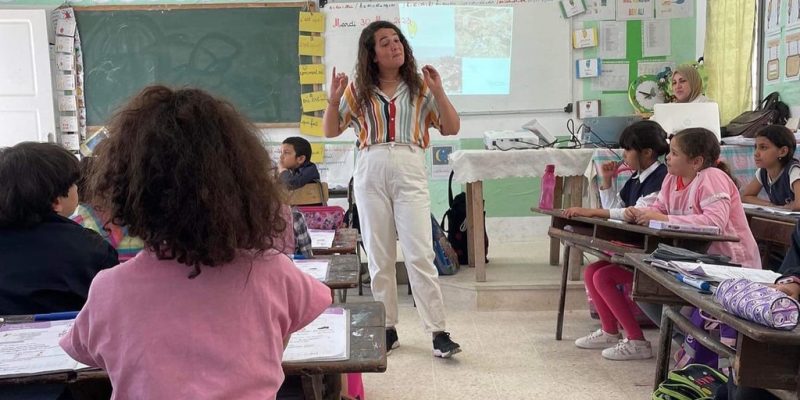The Tunisie Recyclage association is joining forces with the German Agency for International Development Cooperation (GIZ) to equip schoolchildren in the governorates of Kairouan, Gafsa and Bizerte to sort solid waste. This will be part of the Climate Protection through the Circular Economy in Tunisia (ProtecT) project, launched on 17 July 2023.
From the start of the 2023-2024 school year, a new programme will be introduced into the timetable for pupils attending schools in the governorates of Kairouan, Gafsa and Bizerte in Tunisia. This is a training programme on climate change and the circular economy. The initiative has been approved by the Tunisian government and is run by the Tunisie Recyclage association. It will be implemented as part of its Climate Protection through the Circular Economy project in Tunisia (ProtecT), in which the German Agency for International Development Cooperation (GIZ) and the Tunisian environmental protection organisation Soli Green are partners.
Pupils will be trained in good practice in the selective sorting of solid waste. This involves separating waste at source, according to its nature, to avoid contact and contamination. This eco-responsible gesture helps to save natural resources, avoid waste and limit pollution. Tunisia currently produces 2.6 million tonnes of waste a year.
Educating people about climate change
In addition to environmental degradation, pupils in the governorates of Kairouan, Gafsa and Bizerte will learn about the phenomenon of climate change, which is to some extent the result of poor waste management that causes methane emissions.
Read Also – TUNISIA: the University of Sfax opens a master’s degree in solid waste recycling
Climate change is also caused by the use of fossil fuels, among other things. And to reduce its emissions, Tunisia is relying more and more on renewable energies (solar, wind, etc.) to supply electricity to the population and industry. The government wants to reduce its consumption of fossil fuels by 30% by 2030. At the same time, it will also need to adopt sustainable practices in the management of freshwater resources, which are becoming increasingly scarce as a result of drought, another consequence of climate change.
Inès Magoum






